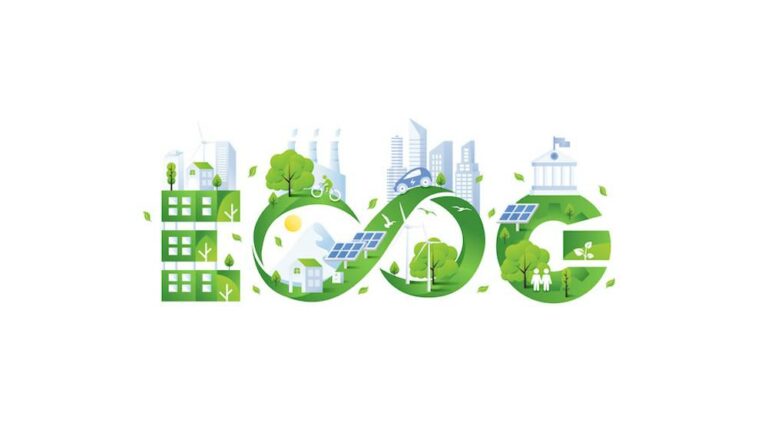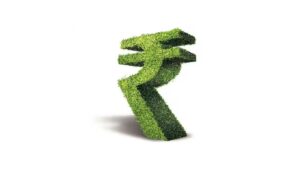Today, environmental, social, and governance (ESG) considerations dominate business discussions and have become an integral part of the strategies of many organisations in different industries. While some companies are grappling with these new standards and commitments, others, already aligned with the Sustainable Development Goals (SDGs), are well prepared to meet the evolving regulations and standards related to corporate social responsibility (CSR) and ESG.
ESG was first heard in 1997, when the Global Reporting Initiatives became one of the most recognised frameworks for sustainability reporting. Several countries introduced mandatory ESG reporting requirements in 2015 with the Paris Agreement and the 17 UN Sustainable Development Goals. Today, ESG investing has become a force to reckon with, as the total amount of investments managed with ESG criteria in mind has increased from $330 million in 2019 to $1.3 billion in 2023.
As India is on its way to becoming the third largest economy and preparations for Budget 2024 are in the final stages, Indian businesses eagerly await a series of meaningful policy measures that can boost sustainable businesses through higher budgetary allocations. Budget 2023 has allocated USD 1.2 billion to promote green growth in the country. This allocation is expected to increase further given the pivotal role that business plays in green development. Tax incentives will boost investment and attract developers and investors which is otherwise very investment-intensive.
Nowadays, ESG and sustainability are rather fashionable buzzwords and have only been put into practice as an integral part of the presentation of ESG business. Most companies are directly or indirectly affected by ESG and sustainability considerations. The rise of ESG initiatives has drawn attention to the rise of greenwashing, where companies falsely portray themselves as environmental friendly or socially responsible. Many have sought to capitalize on greenwashing, where companies that raise money through the stock markets or by issuing debt instruments have no intention of changing their business practices and where the claimed environmentally, socially, and responsibly conscious stance is just another marketing ploy aimed at extracting as much money as possible from an unsuspecting public.
Furthermore, greenwashing can lead to a misallocation of resources, as investors may unwittingly support companies that prioritize marketing over meaningful sustainability measures. To mitigate these risks, regulators, investors, and consumers are increasingly demanding more transparency and accountability in ESG reporting. Companies need to ensure that their ESG commitments are real, measurable, and backed up with concrete actions to build trust and credibility in the evolving landscape of sustainability.
The most polluting industries are the green energy and power sectors, followed by heavy industry, fuel production and processing, light industry, steel, cement, iron and automotive, and others. All these industries carry out several tree planting campaigns on World Conservation Day (28 July), such as the Miyawaki method, to establish dense, multi-layered plantations of native species in a very short time. The problem, however, is that nobody goes back to check whether the forest has grown or not. The saplings die little by little and on 28 July, 365 days later, World Conservation Day is celebrated again with planting campaigns – it is in fact a vicious circle. Thus, the comprehensive efforts to raise awareness of nature conservation and to intensify actions to protect nature end in the destruction of nature.
Several companies operating in green energy, metals, power, and infrastructure have brought corporate social impact back into the spotlight and more and more investors are concerned about how companies treat their contractors, employees, temporary workers, etc. The reality on the ground is different. Plight of millions of workers is not unknown. Now, it is only a matter of time for many to change their policies, especially for companies that hire professionals to take care of the workforce but who really consider them as slaves. In India, there are many companies controlled by the `Lala,’ culture.
ESG is there to create long-term competitive advantage. They see these “sustainable strategies” as a core part of their overall corporate strategy, versus financial strategies. They align their social commitment with their business goals and tax-saving objectives. They are committed to responsible business practices that reduce their carbon footprint and minimise negative environmental impacts in order to get to tax-free heaven. On the other hand, with the growing demand for renewable forms of energy, there are also claims of “greenwashing” in the renewable energy sector — a term that refers to companies misleading consumers about the environmental benefits of their products or services.
The renewable energy sector is one of the biggest polluters in the world and places more emphasis on ESG and SDG targets, and it has to because large solar farms take up a lot of land. Another consequence of solar energy is that the materials needed to build solar cells are quite toxic. And when solar panels reach the end of their life, their disposal can lead to the release of toxins into the earth and the atmosphere. End-of-life solar panels are often dumped in landfills, where there is a risk of these toxic chemicals being released into the environment. Imagine that the solar panels commissioned in India in 2008 will cause the biggest environmental problem in four years when they are disposed of. The construction of wind and solar plants and the disposal of discarded equipment can have harmful effects on the environment.
For many companies today, greenwashing is the art of packaging corporate practices as environmental friendly when in reality they are nothing more than eco-dirt washing. With rapid industrialisation, fast-growing consumption, and emerging environmental, social, and governance regulations, greenwashing is no stranger to India. What makes greenwashing particularly shameful is that more and more companies are exploiting nature, labour, and social responsibility.
Giving away food, and clothes and distributing food to the public during festivals are all ESG and SDG goals? From corporate giants to local businesses, many have used ESG extensively to create an illusion of environmental mindfulness. But the reality is often different. Greenwashing is a blatant betrayal of the fundamental principles that underpin ESG initiatives. ESG is supposed to promote genuine corporate responsibility, sustainability, and accountability. However, when companies engage in greenwashing by misleading, portraying themselves as environmental friendly or socially responsible, they undermine the very essence of ESG. They also divert attention and resources away from those who are genuinely endeavouring to benefit from meaningful and long-term positive initiatives, if any.
Social investors need to be particularly careful when investing in companies that claim to be aware of their social impact. ESG investing in general, and social investing in particular, requires a high level of due diligence if you want to support the causes you believe in. But when companies proudly boast about their green credentials and social responsibility projects, a critical question arises: are these initiatives a genuine endeavour to promote sustainability and ethical corporate governance, or are they just an excuse for tax savings and regulatory appeasement? Are these ESG CSR activities driven by a genuine desire to give something back to society, or are they primarily seen as a compliance requirement and tax-saving scheme?
ESG regulations today only require all companies to spend at least 2% of their average net profit on social causes, which raises tax-related issues that all companies are exploiting as pure WHITE WASH. It’s time for the government to rethink?












